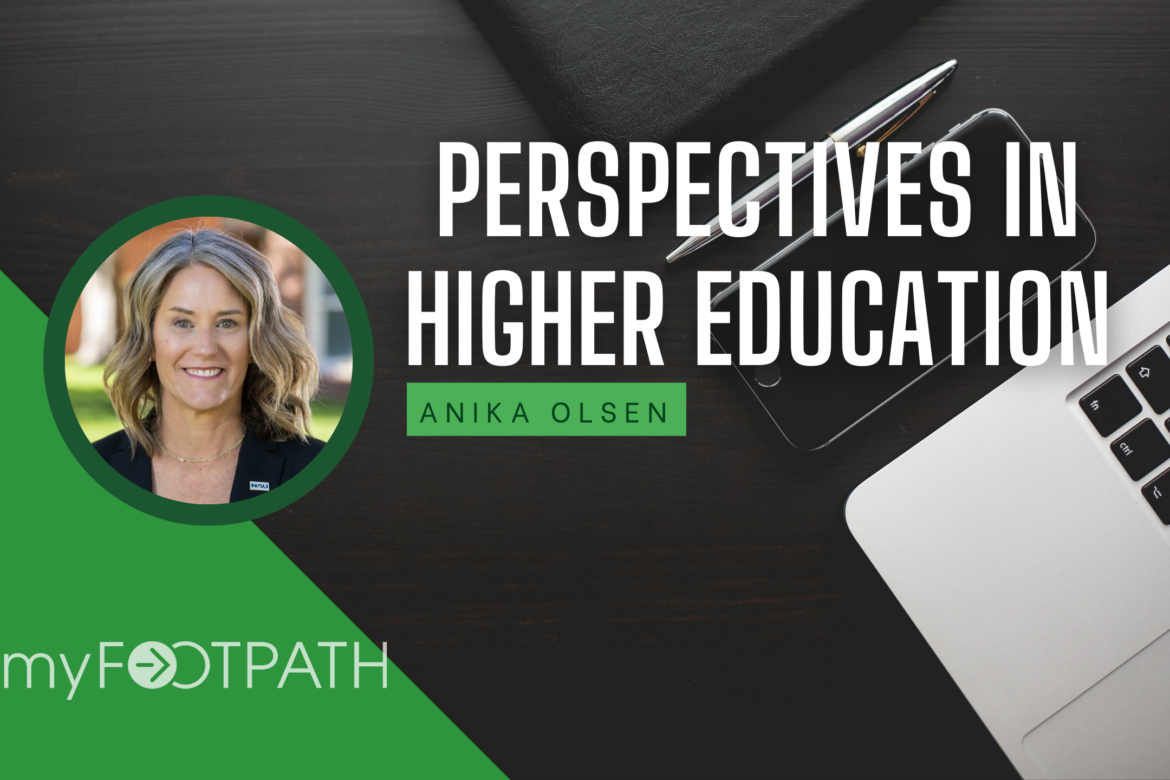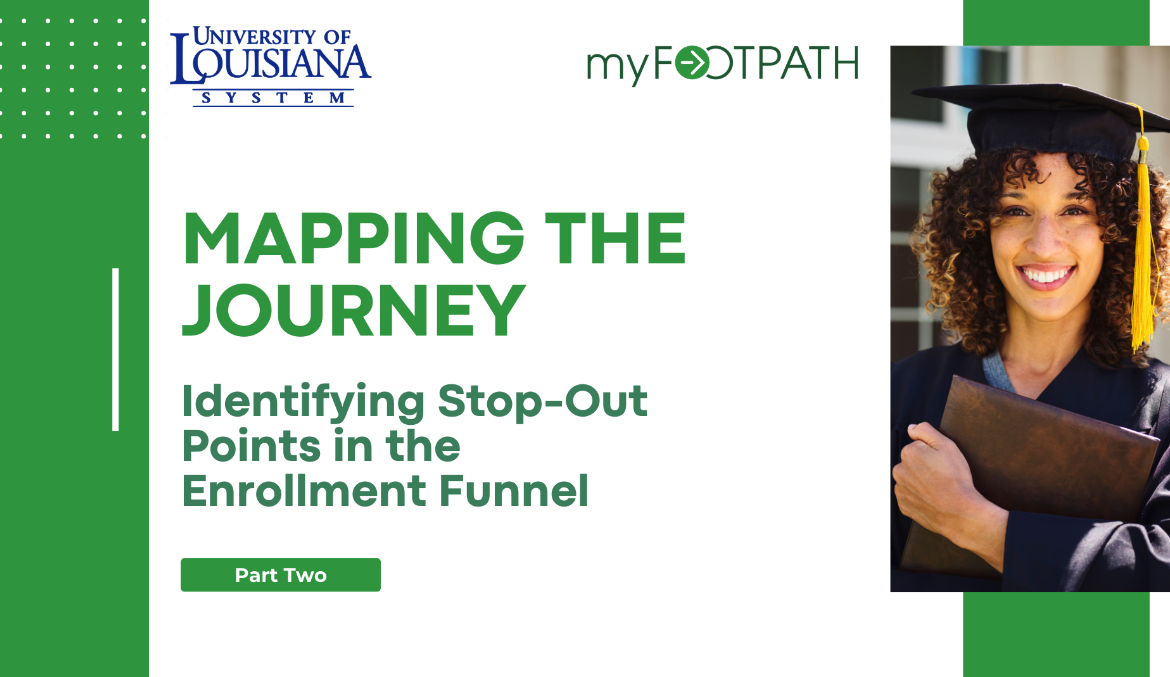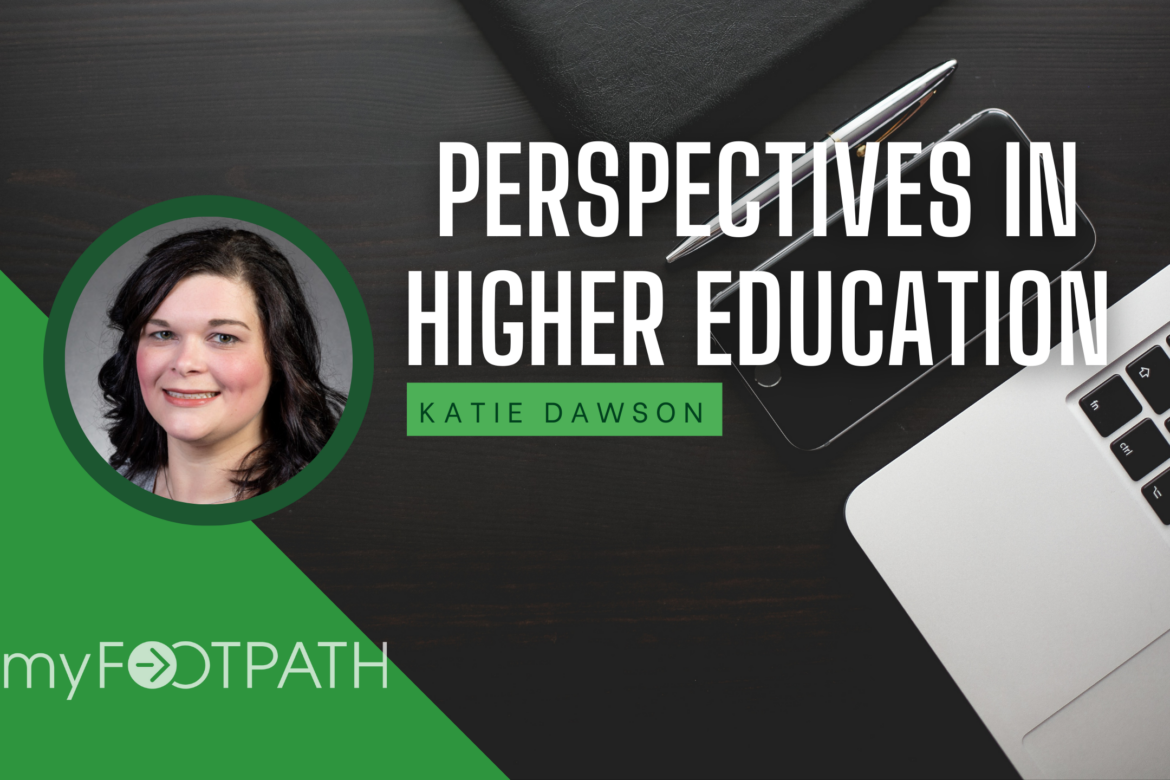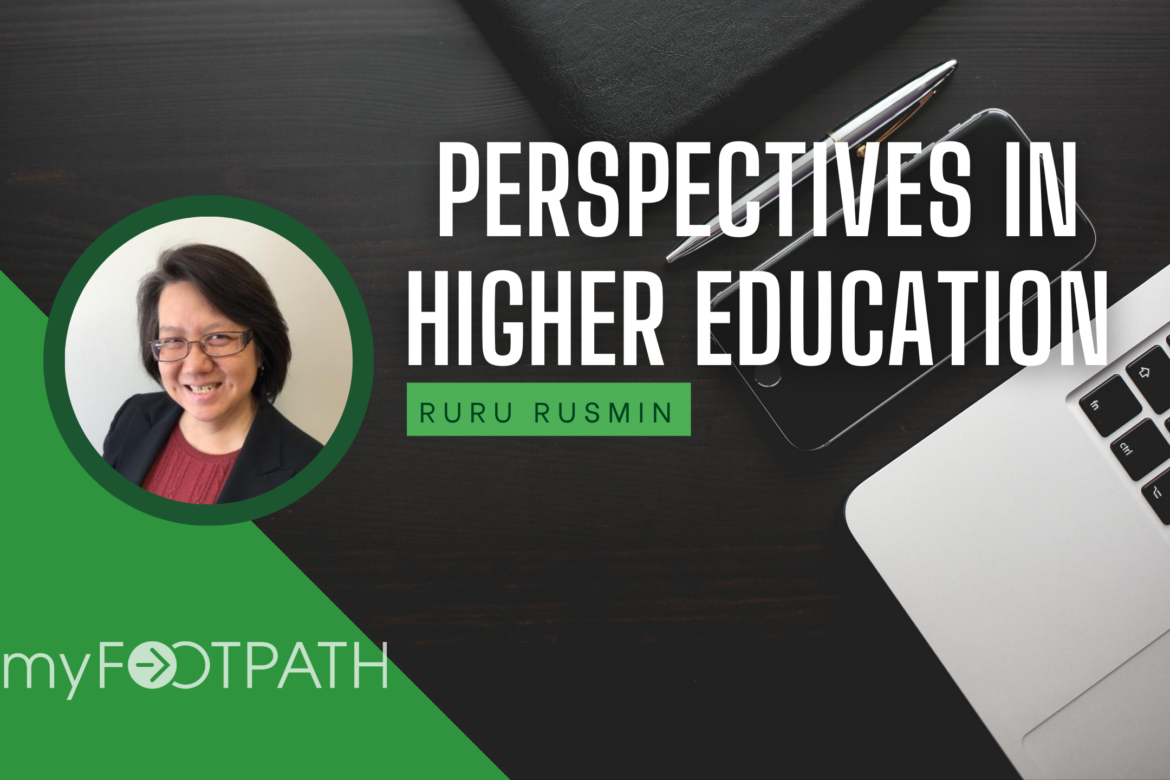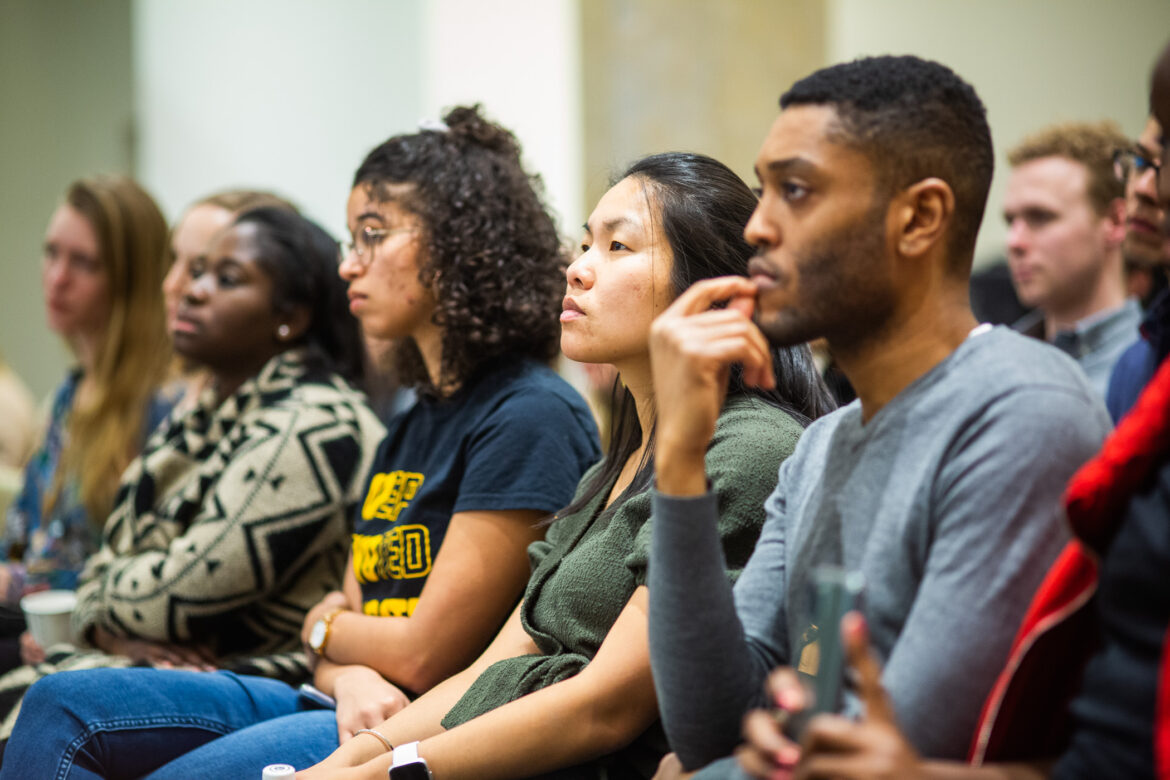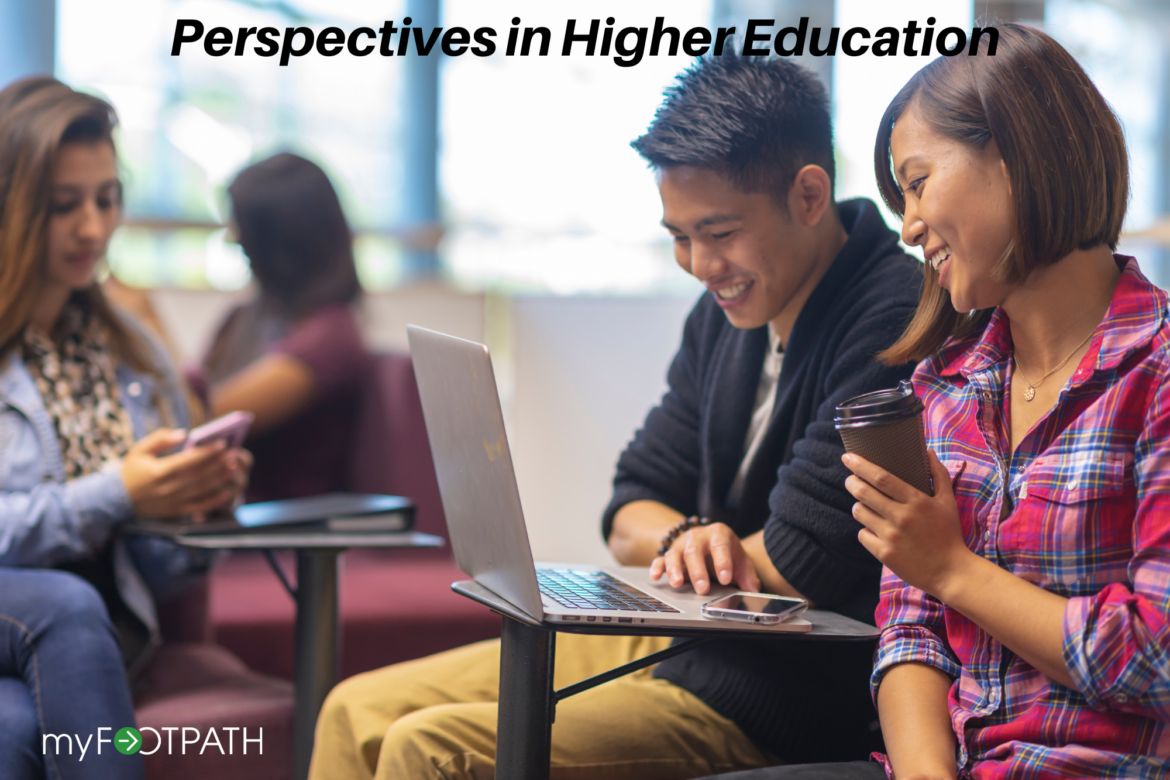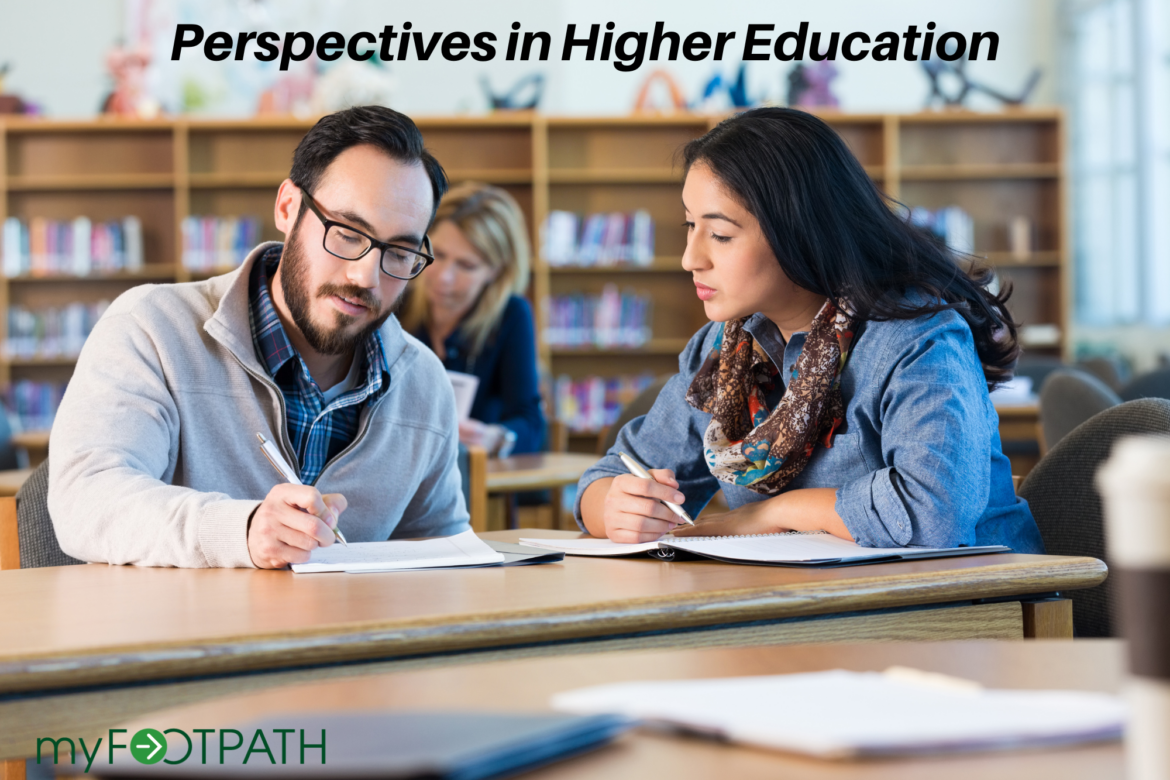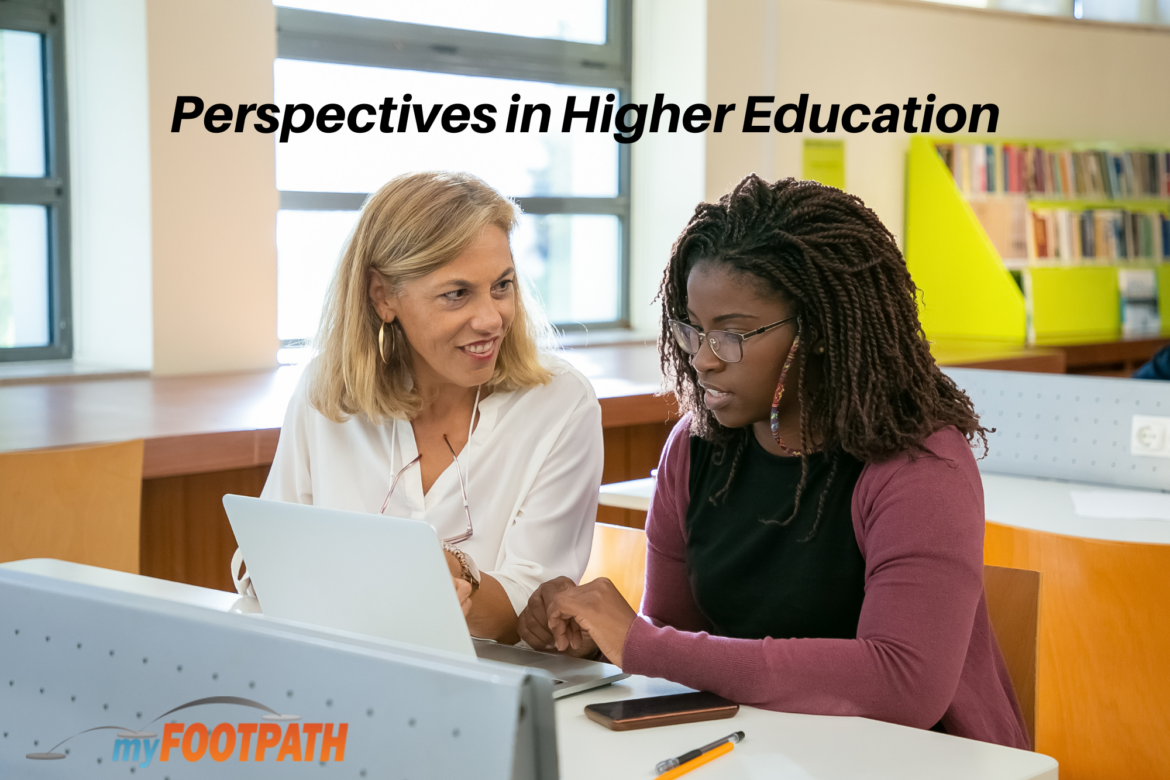Perspectives in Higher Education: Anika Olsen
Educational institutions are dedicated to ensuring students not only graduate but also transition into sustainable, meaningful employment. However, the reality is that some students may temporarily halt their academic pursuits, posing a challenge for institutions in reengaging and supporting their success.
Bringing a compelling real-world success story, we are delighted to introduce Anika Olsen, the Vice President of Enrollment Management at Northern Arizona University, who will unravel the remarkable journey that brought back an impressive 2,500 students within a mere three and a half years, all through their partnership with myFootpath. In this exclusive session, Anika will impart her valuable insights,
Read More
Categories:
News & Research, Uncategorized, Universities

